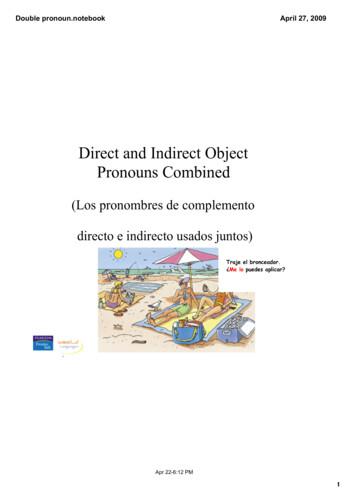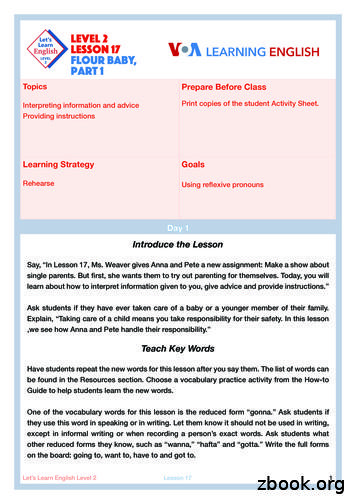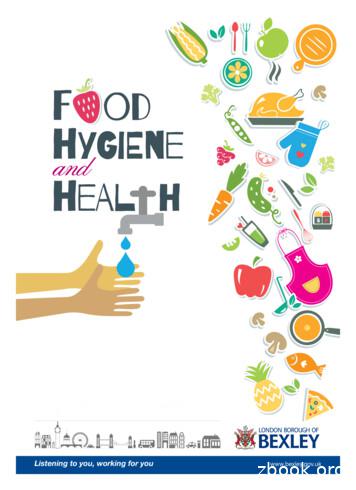Worksheet 1 Subject Pronouns And Verb To Be Worksheet-PDF Free Download
page 20 To choose pronouns appropriately. Pronouns in text page 24 To investigate the use of pronouns. Pronouns in writing page 28 To extend the use of pronouns in writing. oduction oster notes Pronouns (page 10) This poster presents the various words that can function as personal pronouns
Worksheet 7 Worksheet 8 Worksheet 9 Worksheet 10 Worksheet 11 Worksheet 12 Worksheet 13 Worksheet 14 Worksheet 15 Worksheet 16 Worksheet 17 Worksheet 18 Worksheet 19 . Word Search Brass Family Crossword Percussion Family The Orchestra Facts about the Orchestra Odd One Out Aerophones Scrambled Letters Reed Instruments
Lesson 22 t Intensive and Reflexive Pronouns Reflexive Pronouns Reflexive pronouns are a bit different from the other kinds of pronouns. They cause the verb to reflect back on the subject . In other words, reflexive pronouns are used when the subject of the sentenc
Personal Pronouns I, you, he, she Possessive Pronouns my, his, her, mine, ours, theirs Reflexive Pronouns myself, herself, himself Reciprocal Pronouns each other, one another Indefinite Pronouns anything, somebody, everyone, few, both, neither Relative Pronouns who, which, what, that, when, where Inter
indefinite pronouns: Everyone feels lonely at times. Others offer them friendship. Reflexive pronouns reflect the action of the verb back on the subject. Reflexive pronouns end in -self or -selves: Vic wrote a note to himself. Singular Reflexive Pronouns Plural Reflexive Pronouns hi
Double Object Pronouns Double object pronouns occur when both the indirect and direct object pronouns are used together with the same verb. Both the indirect and direct object precede the verb. The indirect object comes before the direct object. Miguel me dio el
repetition of using his name again. Please see below for a list of personal pronouns: Possessive Pronouns Possessive pronouns show ownership or who something belongs to. They are: mine, yours, his, hers, its, ours, yours, theirs. Relative Pronouns Relative pronouns are: who, whose,
page 2. Grammar Boy’s Pronoun Hunt. 1. I 2. he 3. his 4. ours 5. mine 6. yours 7. she 8. it 9. they Year 4 Grammar: Pronouns Answers page 3, 4. Priscilla Pronoun. Personal Pronouns Possessive Pronoun Relative Pronouns Reflexive Pronouns Demonstrative Pronouns I you he she it we they me him
Part 1: Personal Pronouns Singular Personal Pronouns I me my, mine you you your, yours he, she, it him, her, it his, hers, its Let’s Run a Drill! Directions: Underlinethe personal pronouns in the following sentences. (The number of personal pronouns in each sentence is given in parentheses.) Plural Personal Pronouns we
Pronouns Relative pronouns have different functions They introduce a clause (the part of a sentence that gives more information about the noun). They connect the clause to the rest of the sentence. Relative pronouns can be found in sentences with more than one clause. o I cannot believe that she said it. o He who begins late finishes last
WORKSHEETS Worksheet 1: Whole Notes and half Notes Worksheet 2: Quarter Notes and Eighth Notes Worksheet 3: Notes With Flags Worksheet 4: Joined Notes Worksheet 5: Rests With Flags Worksheet 6: More Rests Worksheet 7: Sharps, Flats & Naturals Worksheet 8: Bass Clef Worksheet 9: Treble Clef
Worksheets Worksheet 1 Worksheet 2 Worksheet 3 Worksheet 4 Worksheet 5 Worksheet 6 Worksheet 7 Worksheet 8 Worksheet 9 Revision I Revision II Sample Question Paper Term 1 8. Literature- Prose Beehive 1. The Fun
1 WORKSHEET 1 : Subject Pronouns and Verb “ To Be” WORKSHEET 2 : Present Simple and Present Continuous WORKSHEET 3
The Financial Performance Ratio Analysis Tool 7 Worksheet 1: Setup Data 7 Worksheet 2: Balance Sheet Data 7 Worksheet 3: Core Cost Data 8 Worksheet 4: Income and Expenditure Data 9 Worksheet 5: Key Financial Ratios (Output Worksheet) 10 Worksheet 6: Additional Analysis (Output Worksheet) 12 Conclusion 16
Reflexive pronoun: Reflexive pronouns are used to reflect nouns and pronouns. They are used when the subject and the object are referring to the same thing or person. Reflexive pronouns end in -Self or -Selves. They are: Myself Yourself Himse
Intensive and Reflexive Pronouns Intensive and reflexive pronouns are pronouns that end in -self or -selves. The way the pronoun is used determines whether it is intensive or reflexive. Intensive pronouns usually appear right after the subject of a sentence. They emphasize the subje
Week 3: Spotlight 21 Week 4 : Worksheet 22 Week 4: Spotlight 23 Week 5 : Worksheet 24 Week 5: Spotlight 25 Week 6 : Worksheet 26 Week 6: Spotlight 27 Week 7 : Worksheet 28 Week 7: Spotlight 29 Week 8 : Worksheet 30 Week 8: Spotlight 31 Week 9 : Worksheet 32 Week 9: Spotlight 33 Week 10 : Worksheet 34 Week 10: Spotlight 35 Week 11 : Worksheet 36 .
Pronouns Names and pronouns are a common way to communicate one’s gender. Honoring a person’s name and pronouns shows respect and acknowledgement of their gender and identity. Here are some examples of pronouns that people use, in order of nominative, objective, possessive determ
Nouns Pronouns – Some human languages have different case marking systems for pronouns and common nouns. English has case only on pronouns. Some languages have nominative-accusative pronouns and ergative-absolutive common nouns. Common nouns Proper nouns Any sub-classes
Topic: Relative Pronouns Log into Teams and find the assignment titled “Relative Pronouns.” View the PowerPoint lesson. Topic: Relative Pronouns Review relative pronouns using the Nearpod lesson. www.nearpod.com Please enter your first name and last initial (for example: Erin B.) when putting your name in for the lesson. Access codes:
1.10 Unit end Questions 1. Name any ten nouns around you and classify them accordingly. 2 How are feminine forms formed in English. Give examples. 9 Unit – 2 Pronouns Structure 2.0 Objectives 2.1 Introduction 2.2 Definition 2.3 Kinds of Pronouns 2.3.1 Personal pronouns 2.3.2 Possessive pronouns .
PERSONAL PRONOUNS - page 2 / 6 CC BY-NC-SA 4.0 - French Grammar Games for Grammar Geeks POSITIVE commands 1. COD, COI pronouns, Y, EN and reflexive pronouns FOLLOW the verb: Examples: Regarde ce film! — Regarde-le!(COD) Souriez au photographe! — Souriez-lui!(COI) Habillez-vous!(reflexive) Allez en France pour les
but both pronouns must remain next to each other, that is, When using double pronouns, the Indirect Object ALWAYS comes first. both pronouns must come either in front of the conjugated verb Te la voy a traer más tarde. I am going to bring it to you later. or after the infinitive
pronouns Reflexive Pronouns myself yourself/yourselves himself /herself oneself itself ourselves yourselves themselves More on singular and plural reflexive pronouns Singular reflexive pronouns end in “self.” Plural ones end in “selves.” Anna says, “We need to throw ourselv
person) are called personal pronouns. Personal pronouns refer to people or things. Personal pronouns change their form to indicate gender and whether the antecedent is singular or plural. Personal pronouns have different forms in the nominative, o
3.4.3.2. The long form of the reflexive pronouns 3.4.4. Pronouns of reinforcement 3.4.5. Possessive pronouns and pronominal adjectives 3.4.5.1. The possessive pronominal adjectives in the nominative-accusative case 3.4.5.2. The possessive pronouns in the nominative-accusative case 3.4.5.3. The declension of the posse
notion of SL interference: English pronouns tend to be directly transferred to Lithuanian although due to the inflectional nature of the language they might be omitted or rendered using other grammatical structures (e.g., participial instead of relative clauses with relative pronouns). In original Lithuanian, personal pronouns,
Noun clauses (;sentence) Infinitives [with to] [without to] Gerund Pronouns Referential Pronouns Interrogative-Exclamatory Pronouns Relative Pronouns I, you, he, she, it, this, that What, who, which which , that Verbs do what (Aux. ) Verbs (do/will) come Pro-verbs (You knew
In Jordanian Arabic, the subject pronouns parallel subject pronouns in English, except they include more versions of the 2nd person (you).1 The subject pronouns in Arabic are: Table 4.1 . English Arabic Transliteration . I . انأ
Lesson 2: Personal hygiene, worksheet B Lesson 2: Food hygiene, worksheet C Lesson 3: Food storage, worksheet D Lesson Plan: Diet and health Lesson 4: Healthy eating, worksheet E Lesson 5: Balanced diet, worksheet F and G Lesson 6: Healthy choices, worksheet H Food hygiene and safety word search, worksheet I Pupil Assessment Pupil Certificate
WORKSHEET 5 : Past form of verb “ To Be “ WORKSHEET 6 : Past form of verb “ To Be “ WORKSHEET 7 : Simple Past Tense . WORKSHEET 8 : Simple Past and Past Continuous . WORKSHEET 9 : Simple Past and Past Continuous . WORKSHEET 10 : Present Perfect Tense . WORKSHEET 11 : Present Perfect Tense vs Present Perfect Continuous
Mind Over Mood Depression Inventory Scores Worksheet 13.3. Identifying Cognitive Aspects of Depression Worksheet 13.4. Activity Record Worksheet 13.5. Learning from My Activity Record Worksheet 13.6. Activity Schedule Worksheet 14.1. Mind Over Mood Anxiety Inventory Worksheet 14.2. Mind Over Mood Anxiety Inventory Scores Worksheet 14.3.
worksheet sh.get_worksheet(0) Or by title: worksheet sh.worksheet("January") Or the most common case: Sheet1: worksheet sh.sheet1 To get a list of all worksheets: worksheet_list sh.worksheets() 4.1.5Creating a Worksheet worksheet sh.add_worksheet(title "A worksheet", rows "100", cols "20") 4.1.6Deleting
DOSSIER RECUPERACIÓ ANGLÈS 1R ESO – INS VICENÇ PLANTADA STARTER UNIT Subject and object pronouns and possessive adjectives 1 Complete the object pronouns
Reflexive pronouns for same subject and object We often use reflexive pronouns when the subject and the object of the verb refer to the same person or thing: He cut himself on the broken glass. She made herself a cup of tea and sat down in front of the television. Parents often blame themselves for the way their children behave.
A re flexive pronoun refers ba ck to a noun / pronoun (subject) of a. sentence. It adds information about the noun / pronoun it refers. Reflexive pronouns are used when the subject and object are the same in a s entence. They also refer to th e personal pronouns mentioned earlier in . Reflexive Posses
Present Progressive Simple Present vs. Present Progressive Pronouns Subject Pronouns Object Pronouns Past Verb Be Regular Verbs Irregular Verbs Time Expressions There is and There are There is / There are Subject-Verb Agreements with There is / There are
Demonstrative pronouns someone specif * Take note that they can be confused with demonstrative adjectives. Indicates something or ic. E.g. That is my bag. Rule: If the word is followed by a noun it is not a pronoun! E.g. That bag is my bag. ADJECTIVE This, that, these, those. 5. Reflexive pronouns (All of th
French 1 Chapter 1 Grammar Review Subjects and Verbs 1. A subject is a person, place or thing that is acting or being described: Ex: My friend has a book Mon ami a un livre 2. A verb is the action being done by the subject Ex: My friend has a book Mon ami a un livre Subject Pronouns 1. Subject pronouns replace the subject to avoid repetition:
6. The cat licked (its / it’s) paw over and over again. Homophones are words that sound alike but have different spellings and meanings. Some pronouns are also homophones. Subject pronouns are often used in conjunction with verbs to form contractions. Contractions and possessive pronouns can be homophones.


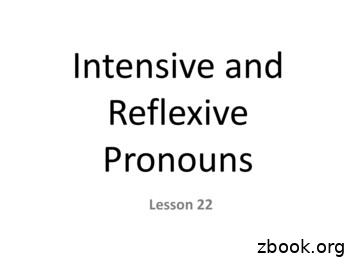




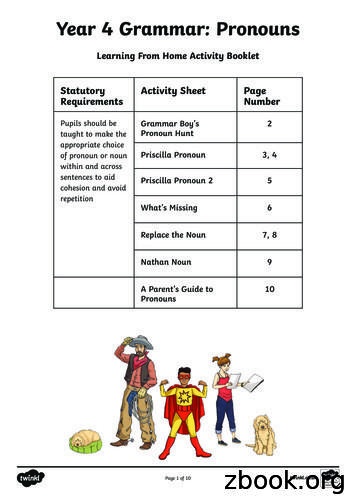









![WELCOME! [ thetrevorproject ]](/img/143/guide-to-being-an-ally-to-transgender-and-nonbinary-youth.jpg)




